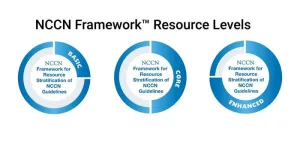(Press-News.org) AMES, IA — Last month, the American Psychological Association and the U.S. Surgeon General both issued health advisories. Their concerns and recommendations for teens, parents and policymakers addressed a mounting body of research that shows two trends are intertwined.
Young people are using social media more, and their mental health is suffering.
Researchers at Iowa State University found a simple intervention could help. During a two-week experiment with 230 college students, half were asked to limit their social media usage to 30 minutes a day and received automated, daily reminders. They scored significantly lower for anxiety, depression, loneliness and fear of missing out at the end of the experiment compared to the control group.
They also scored higher for “positive affect,” which the researchers describe as “the tendency to experience positive emotions described with words such as ‘excited’ and ‘proud.’” Essentially, they had a brighter outlook on life.
“It surprised me to find that participants’ well-being did not only improve in one dimension but in all of them. I was excited to learn that such a simple intervention of sending a daily reminder can motivate people to change their behavior and improve their social media habits.” says Ella Faulhaber, a Ph.D. student in human-computer interaction and lead author of the paper.
The researchers found the psychological benefits from cutting back on social media extended to participants who sometimes exceeded the 30-minute time limit.
“The lesson here is, it's not about being perfect but putting in effort, which makes a difference. I think self-limiting and paying attention are the secret ingredients, more so than the 30-minute benchmark,” Faulhaber states.
Douglas A. Gentile, co-author and distinguished professor of psychology, says their results fit with other research that’s grown out of kinesiology and health fields.
“Knowing how much time we spend on activities each day and making something countable makes it easier for people to change their behaviors,” he says, giving Fitbits and daily steps as an example.
Many of the participants in the ISU study commented that the first few days of cutting back were challenging. But after the initial push, one said they felt more productive and in tune with their lives. Others shared that they were getting better sleep or spending more time with people in person.
Self-limiting may be more practical
Gentile and Faulhaber point out other studies have investigated the effects of limiting or abstaining from social media. But many of the interventions require heavy supervision and deleting apps or using a special application to block or limit social media. Like rehab for someone who’s addicted to drugs, external accountability can help some users. But it also carries a higher risk of backfiring.
“When a perceived freedom is taken away, we start resisting,” says Gentile. He adds that eliminating social media also means losing some of the benefits it can bring, like connecting with friends and family.
Faulhaber says their study extends the current research on social media and provides a practical way for people to limit their use. For anyone looking to cut back, she recommends:
Create awareness. Set a timer or use a built-in wellness app to see how much time you spend on social media.
Give yourself grace. Recognize that it’s not easy to stick to a time limit. Social media apps are designed to keep you engaged.
Don’t give up. Limiting social media use over time has real benefits for your daily life.
The researchers say it’s also important to be mindful of how and when we use these platforms. Future research could further explore this, along with the long-term effects from limiting social media and what people do with the time they gain.
"We live in an age of anxiety. Lots of indicators show that anxiety, depression, loneliness are all getting worse, and that can make us feel helpless. But there are things we can do to manage our mental health and well-being,” says Gentile.
Paying more attention to how much time we spend on social media and setting measurable goals can help.
Jeong Eun Lee, assistant professor of human development and family studies, contributed to the paper.
END
Cutting back on social media reduces anxiety, depression, loneliness
2023-06-14
ELSE PRESS RELEASES FROM THIS DATE:
DESI data sheds more light on 3D map of cosmos, study of universe
2023-06-14
Dr. Mustapha Ishak-Boushaki, a theoretical astrophysicist at The University of Texas at Dallas, has spent his career seeking answers to some of the universe’s greatest mysteries, including why the expansion of the universe seems to be accelerating and whether gravity behaves differently beyond our closest cosmic neighbors.
To study these and other questions, a large collaboration of scientists, including Ishak-Boushaki and UTD physics doctoral students Cristhian Garcia Quintero, Leonel Medina Varela and Yunan Xie, are using data from the Dark Energy Spectroscopic ...
Under the weather: Scientists should spend more time in the rain
2023-06-14
Scientists need to get out of the lab and into the rain, say an interdisciplinary group of researchers led by John T. Van Stan of Cleveland State University. Writing in the journal BioScience, the authors make the case that human observation of storm events (be it rain, snow, or occult deposition) is key to understanding wet weather and its myriad effects on the natural world.
Recently, Van Stan and colleagues noted a trend in the scientific community towards relying on remote ...
Gene provides clues for preventing common diabetes side effect of corticosteroid treatment
2023-06-14
A study led by researchers at the Garvan Institute of Medical Research shows for the first time how a gene called RELA, known to regulate inflammation, also plays an essential role in maintaining normal blood-sugar levels.
The findings, published in Diabetologia, have implications for the prevention of steroid-induced diabetes, a temporary form of diabetes that affects up to half of hospital patients treated with high-dose steroids.
“Our discovery sheds new light on a complex network of factors governing glucose metabolism and how it can go awry in diabetes,” says Professor ...
How prescribed burns could limit megafires in California, Oregon, and Washington
2023-06-14
Wildfire smoke is a threat to air quality, public health, and ecosystems throughout the U.S. Notwithstanding the impact of this year’s Canadian wildfires, the West typically sees much higher exposure to wildfire smoke than other regions of the country. New research from Harvard University, the U.S. Forest Service, and National Oceanic and Atmospheric Administration indicates that controlled burns – particularly in coastal areas of northern California and the Pacific Northwest – could dramatically reduce the overall amount of wildfire smoke exposure in vulnerable rural communities and dense ...
Specialty drugs accounted for most new product launches in the past decade. Why do we know so little about how clinical studies influence their diffusion?
2023-06-14
Researchers from McGill University and Ontario Tech University published a new Journal of Marketing article that examines the drivers of specialty drug diffusion.
The study, forthcoming in the Journal of Marketing, is titled “Scientific Evidence Production and Specialty Drug Diffusion” and is authored by Demetrios Vakratsas and Wei-Lin Wang.
A notable trend in the pharmaceutical industry is the development of specialty drugs to treat complex, severe diseases, often with a limited number of patients. Of the 219 new drugs (or new active substances, NASs) that were launched in the U.S. between 2014 and 2018, 136 ...
NCCN debuts roadmap for improving thyroid cancer care in low- and middle-income countries on world stage
2023-06-14
PLYMOUTH MEETING, PA and LONDON, UK [June 14, 2023] — The National Comprehensive Cancer Network® (NCCN®) is introducing a new global resource to improve thyroid cancer care in low- and middle-income countries at the upcoming World Congress on Thyroid Cancer, in London. During the event, NCCN Senior Vice President and Chief Medical Officer, Wui-Jin Koh, MD, will present on NCCN’s ongoing global work to define and advance high-quality, high-value, patient-centered cancer care. As part of ...
Alcohol harm reduction can also reduce other substance use
2023-06-14
SEATTLE, Wash. – Quitting alcohol or drugs was not a top priority for people experiencing homelessness in a harm reduction treatment study, yet participants still reduced their use of both.
A different approach than traditional abstinence-based programs, harm reduction treatment for alcohol use disorder, also called HaRT-A, has patients set their own goals. In a study of 308 people experiencing homelessness, the participants receiving harm reduction treatment set goals of meeting basic needs and improving quality of life well above quitting alcohol and other substances.
Yet harm reduction treatment still led to more reduced use compared to a control group who received ...
New state-of-the-art robotics lab to be created at Maynooth University
2023-06-14
The Maynooth University Foundation is delighted to announce a significant donation from Intel Ireland to support the creation of a state-of-the-art robotics lab. The lab will provide MU students with invaluable hands-on learning experiences using cutting-edge robotic technologies.
The establishment of the robotics lab at a total cost of €150,000 will equip Maynooth University students with access to innovative robotic technologies and equipment used by engineers from Intel and other companies. This hands-on experience will enable them to bridge the gap between classroom learning and real-world application, empowering them to develop and refine their skills in robotics.
The ...
Inhaled beta-2 agonists are not associated with a lower risk of Parkinson’s disease
2023-06-14
Beta-2 agonists are bronchodilators commonly used in the treatment of asthma and chronic obstructive pulmonary disease (COPD). Although beta-2 agonists have been associated with a reduced risk of Parkinson’s disease in some previous epidemiological studies, this association was not found in a recent register-based study from the University of Eastern Finland. The findings were published in Clinical Epidemiology.
Accumulation of the alpha-synuclein protein in the brain plays a central role in Parkinson’s ...
Slightly lost bumblebees use scent to find their way home
2023-06-14
Put yourself in the exoskeleton of a bumblebee for a moment: your world would be a riot of colors and scents, both essential to guide your search for pollen and nectar. Bumblebees have excellent vision: they have a pair of compound eyes that can distinguish UV and most colors except red, plus three additional simple eyes specialized in detecting polarized light. Their sense of smell dwarfs ours: approximately 100 times more sensitive, and capable of sniffing out illegal drugs or explosives at airports, confirming pregnancy in women, or detecting cancers and diabetes in early-stage patients.
Now, ...




